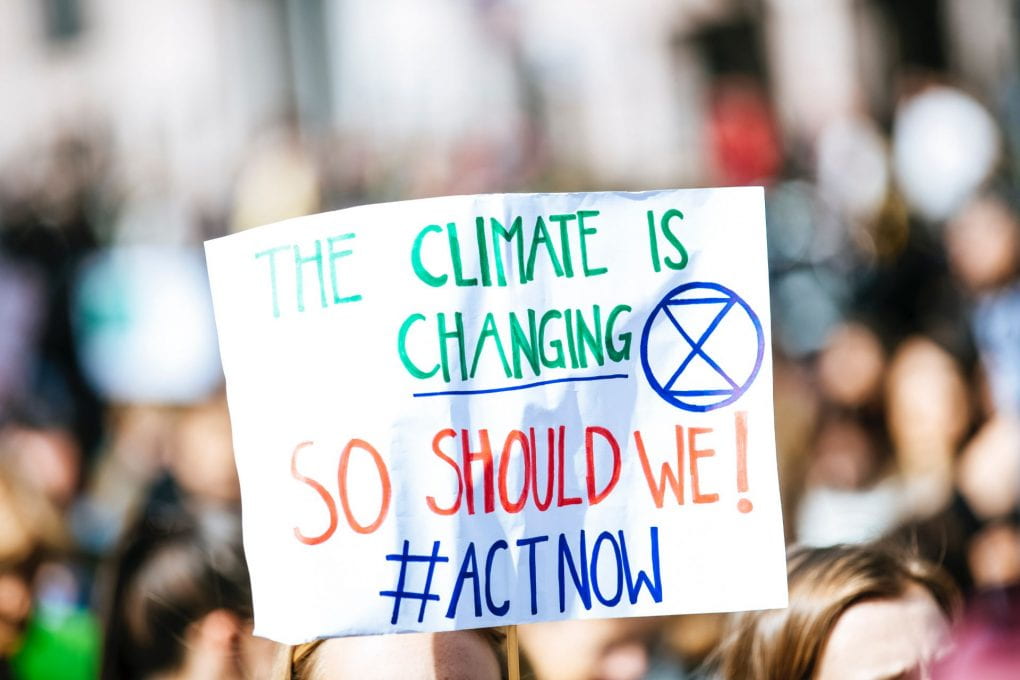2021 Vaughn Foreign Service Fellow, Aubrie Yarbrough spent her summer interning with the U.S. Department of State in Italy and shares her experience with us here.
One of the most pressing issues of our time, and the future, is climate change. Not only is it a matter of responsibility to save our home, but it is also a question of saving ourselves. Therefore, climate change must be acted on now, and the United States must work earnestly in international collaboration rather than continuing a path of withdrawal from the international order.
At the culmination of President Trump’s administration, climate change was farthest from America’s agenda, while actions leading towards retrenchment grew. Retrenchment, the international withdrawal of armed forces and security commitments, is the extreme of the America First rhetoric and populist fever which largely contributed to Trump’s election. His steps taken toward this agenda included berating the World Trade Organization (WTO) and threatening to leave the World Health Organization (WHO) and other international organizations, and most significantly in removing the United States from the Paris Climate Accord.
The Paris Accord is the most substantial and successful action thus far in dealing with climate change internationally, with 196 countries agreeing to reduce carbon dioxide emissions with the goal of keeping global temperature at a minimum of +1.5 degrees Celsius from the 2015 baseline temperature. I describe it as successful because 196 countries were able to agree to respect the terms, whereas other climate agreement predecessors, such as the Kyoto Protocol in 2005, sets emission goals for far fewer countries. When President Trump left the accord in 2020, it jeopardized not just the United States, but other countries as well. It validified doubt of U.S. intentions and actions and set back global progress by not dealing with U.S. domestic emissions which influence other nations, but also minimized legitimacy of the Paris Accord without the superpower’s endorsement. There are many reasons to be in the agreement, more than the fact that the United States is the second largest emitter of CO2.
President Biden rejoined the Paris Agreement in 2021 with these factors in mind. In reality, it is unlikely another agreement would garner such respect as legally binding. It would also take considerable time to create and introduce another international accord, and unfortunately, time is something that we currently lack in the fight against climate change. Those who criticize climate change about its futuristic rhetoric are correct; it is more of a threat to future populations than right now, but it makes little sense to condemn those who are not yet in existence.
At my internship with the United States State Department this summer, the Environment, Science, Technology, and Health section focused on preparing for the COP26, or the UN Climate Change Conference, which Italy will co-lead at the end of October. The COP26’s main objectives are to negotiate how to reach net-zero emissions by 2050, protect endangered habitats from urbanization, secure funds for climate action, and finalize the Paris Accord rulebook to accelerate international cooperation. These are all reasonable and necessary actions towards protecting our present and future, both politically and environmentally. Therefore, the United States must take an active role in the conference and contribute by creating a plan to significantly reduce our emissions and negotiating the rulebook to ensure its equality and effectiveness.
The battle is not over following this conference, but must be continued in America, not just to abide by the Paris Accord, but because the American people believe in the cause. In order to inspire pride in the ecology of the homeland, a desire to protect it, and an increased public awareness of each individual’s impact on the environment, the Department of Education should advocate for states to adopt a required environmental class. It would be in the physical sciences curriculum in public schools, and high school students would learn about environmental history, how and why to take care of the environment, and the various climate agreements and the commitments of the Paris Climate Accords. Humanity is only doomed to failure if we surrender to it, but I firmly believe surrender is not synonymous with the American creed.
Aubrie Yarbrough is a senior at SMU and was the 2021 recipient of the Jack C. and Annette K. Vaughn Foreign Service and International Affairs Internship. She is double majoring in International Relations and World Languages (Italian, Spanish, and beginner French) and triple minoring in Environmental Anthropology, History, and Economics. Post-graduation, Aubrie plans to pursue a Master’s degree at a prestigious foreign policy school and take the Foreign Service Exam.
